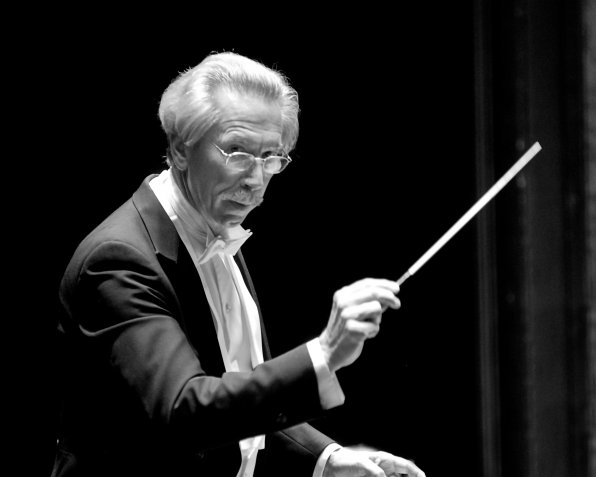Paul Brogan’s commute to the office of the Granite State Symphony Orchestra is a rather simple one.
Go to the end of the couch and take a left.
Brogan’s dining room table is peppered with all manner of orchestra-related pamphlets and papers and acts as his desk for about five hours every day. There have been similar settings in other houses throughout the city in the 19 years since the orchestra began, as the group opts not to have an office in the traditional sense, instead focusing all of its efforts on the five concerts it performs each year.
“For the previous 18 years there have been other people who have sacrificed their kitchen tables, dining room tables and spare rooms on behalf of the orchestra, because we don’t have an office, per se,” Brogan, who joined the board last year and heads up the fundraising efforts, said. “But that’s good in many ways because when we reach out to people, they know the money is not going toward rent or a new computer or benefits or salary.”
That lack of a storefront can create an illusion of anonymity, something the GSSO has long been fighting. After all, the orchestra has employed accomplished musicians from around New Hampshire and Massachusetts since its inception, under the guidance of co-founder and music director Robert Babb, and has developed something of a loyal following and sturdy reputation.
But there are still those who, when they hear the group’s homebase is the Concord City Auditorium, can only conjure an image of instrumentalists practicing in a garage. Brogan believes you could hear a similar show in New York City or Boston, but you’d spend more before you get to your seat than you would spend on the seat itself here.
“When you mention there’s a symphony orchestra in Concord, a lot of people say, ‘You’re kidding,’ ” Brogan said. “I think their feeling is, oh, it’s a bunch of locals that get together with their bassoon and their oboe and there’s a bad note here and a bad note here. I don’t think they realize these are professional musicians. The quality of music you are getting is comparable to what you’d get if you went down to Boston, but you’d pay more in Boston to park than you would for a ticket to one of our concerts.”
Indeed, the average ticket price is “somewhere around $20,” Brogan said. The GSSO is currently in its 19th season, with the next concert, Baroque is Back, set for Nov. 3.
There is also a fundraising concert at the Capitol Center slated for Nov. 9 featuring Guy and Ralna from the Lawrence Welk show, an attempt to open some new eyes to what is happening with the orchestra. The GSSO is hoping to tap into the loyal following of the Welk show in order to cultivate a few new fans for its own.
“That is always one of the struggles is to get the word out there to everybody. It doesn’t really matter whether you are in a major metropolitan area or a more rural area, you’re always struggling to get the word out there,” Alan Jesseman, president of the GSSO, said. “That’s one of the great things about celebrity fundraising. Celebrities definitely broaden the appeal. A lot of times that might be someone’s first taste of something, but they might become involved over the long term.”
The Audi has been the GSSO’s home from the start, when Babb and Daniel Crean teamed up to form the group because Concord was one of only a handful of state capitals in the country without a symphony orchestra of its own.
“It hasn’t been an easy road to survival, but it’s been an exciting road,” Babb, who noted that the orchestra personnel often differs from concert to concert, even within the same season, said. “What’s happened over the course of 19 years is the orchestra has just gotten better and better and better.”
An average concert includes 30-35 musicians on stage, though one show last March featured more than 50 – “on the City Auditorium stage they were almost on top of each other,” Brogan said – and an upcoming show in March is likely to feature almost 50, as well. One goal of the GSSO since its inception was to have more than half of its musicians come from New Hampshire, a feat it achieved with its first show this season.
The caliber of performance is magnified when considering the rehearsal schedule, which isn’t much of a schedule at all. Because the musicians travel from parts near and far, they usually convene for a Thursday practice and have another on Saturday afternoon – and then perform the concert that night.









